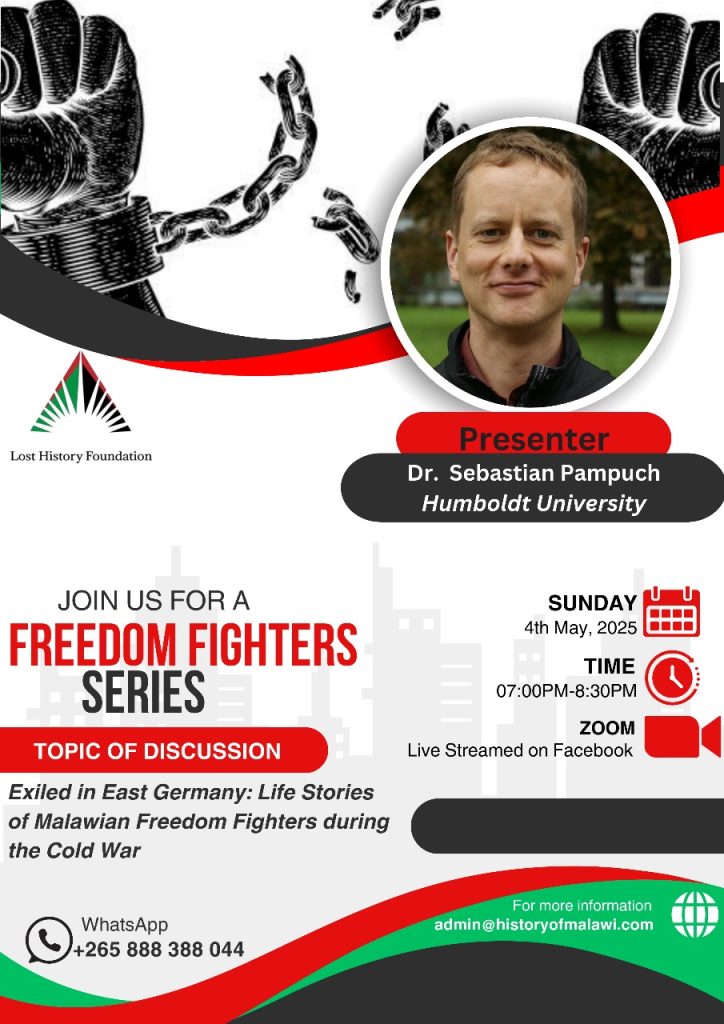
The Lost History Foundation’s FREEDOM FIGHTERS SERIES begins on 4 May 2025 with a presentation by Dr. Sebastian Pampuch from Humboldt University. He will present on “Exiled in East Germany: Life Stories of Malawian Freedom Fighters during the Cold War.”
It is not by accident that this presentation comes in the month of May, which is very significant in the history of Malawi particularly the struggle for freedom and democracy:
1. 4 May 1992: Workers at David Whitehead & Sons Factory in Blantyre began a strike, which by 6 May 1992 had been joined by members of the general public protesting against the one-party state. Dozens of people were shot dead by police, while many others were arrested. This unrest occurred barely a month after the arrest of veteran trade union leader and freedom fighter Chakufwa Chihana.

2. 7 May 1992: Protests and riots spread to Lilongwe, where Chakufwa Chihana was expected to appear at the High Court on sedition charges. When the state failed to produce him, protesters rampaged similarly to those in Blantyre the previous day.
3. 11 May 1992: Major aid donors convened in Paris and unanimously decided to suspend non-humanitarian aid to Malawi until substantive progress was made on human rights. This action was partly influenced by fierce lobbying by Malawi’s opposition in exile, the United Front for Multi-party Democracy (UFMD), which had previously operated as the Socialist League of Malawi (LESOMA).
4. *Mid-May 1992*: Security forces conducted extensive searches of offices and private homes to uncover sources of pro-multi-party literature, which had begun circulating widely. Dozens, possibly hundreds, were arrested, including employees of the National Bank of Malawi and the entire computer section of ESCOM. Many arrests were connected to workplaces with photocopying or fax machines allegedly used to distribute seditious documents, including the famous Pastoral Letter issued by Roman Catholic bishops.
5. 15 May 1992: Krishna Achutan, son-in-law of Aleke Banda (former Secretary General of the MCP and Cabinet Minister), was arrested after an interview with BBC’s “Focus on Africa,” in which he revealed Aleke Banda’s deteriorating health due to prolonged detention, implicitly calling for his release.
6. 18 May 1983: Three cabinet ministers — Dick Matenje, Aaron Gadama, Twaibu Sangala — and MP David Chiwanga were assassinated.
7. 17 May 1994: Malawians went to the polls to elect a new government, marking the climax in the country’s transition to multi-party democracy after decades of political struggle since 1964 and even earlier.
Join the Lost History Foundation by attending the Freedom Fighters Series, which seeks to pay homage to Malawians at home and abroad who participated in the struggle for freedom and democracy in various ways and at different points in time since 1964.
Some of their names may remain unknown, but their contributions are deeply acknowledged and appreciated.